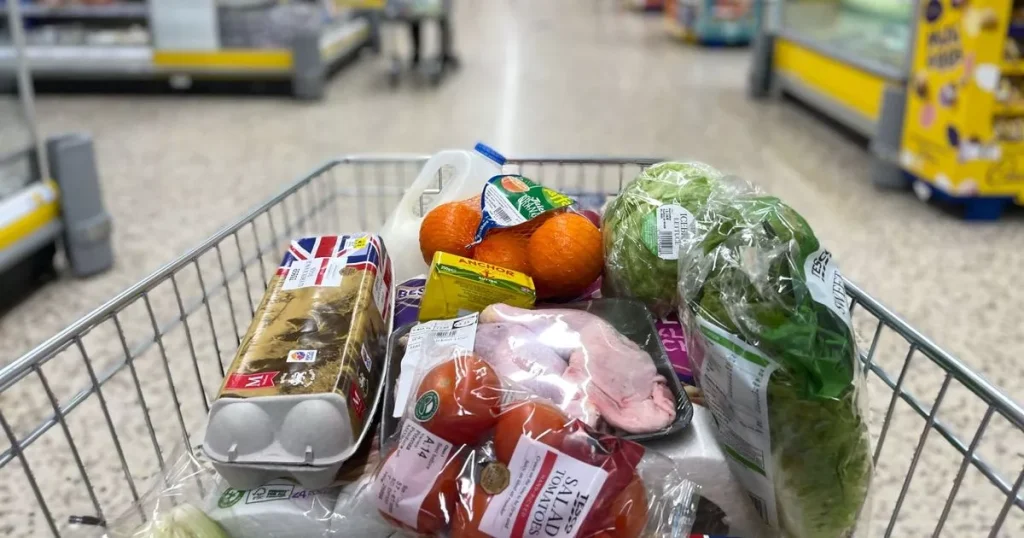Supermarket shoppers warned food prices ‘not going anywhere but up’

Supermarket shoppers have been warned food prices will rise by an average of 4.2% later this year.
British Retail Consortium (BRC) chief executive Helen Dickinson said there was “little hope of prices going anywhere but up” as retailers look to mitigate higher employer National Insurance costs, as well as an increase in the minimum wage. Major retailers such as Tesco, Asda, Sainsbury’s and Marks and Spencer have all issued warnings of higher prices following the changes that were announced in the Budget.
Ms Dickinson said: “As retailers battle the £7 billion of increased costs in 2025 from the Budget, including higher employer NI, National Living Wage, and new packaging levies, there is little hope of prices going anywhere but up. Modelling by the BRC and retail chief financial officers suggest food prices will rise by an average of 4.2% in the latter half of the year, while non-food will return firmly to inflation.
Exact date millions of workers will get pay rise this year – see how much your wages will rise by
Vitamin supplements urgently recalled over 'abnormal heartbeat' fears
“Government can still take steps to mitigate these price pressures, and it must ensure that its proposed reforms to business rates do not result in any stores paying more in rates than they do already.”
The latest BRC-NielsenIQ Shop Price Index shows shop prices were 1% lower in December than a year earlier. Prices of products other than food were 2.4% cheaper in December, the deepest deflation since April 2021, although this was influenced by later Black Friday discounting this year.
Food prices overall were unchanged at 1.8% higher than a year ago – the lowest since November 2021 – as was fresh food inflation at 1.2%, although ambient food inflation edged up to 2.8% from 2.7% in November. The BRC-NielsenIQ report follows figures from analysts Kantar this week showing inflation across supermarkets jumped from November’s 2.6% to 3.7% in December – its highest level since March.
Ms Dickinson said: “Retailers discounted heavily for Black Friday this year as they attempted to make up for weaker sales earlier in the year. However, the later Black Friday timing brought many of the non-food discounts into the measurement period, making non-food prices look more deflationary than the underlying trend. With food inflation bottoming out at 1.8%, and many price pressures on the horizon, shop price deflation is likely to become a thing of the past.”
Mike Watkins, head of retailer and business insight at NielsenIQ, said: “During December, shoppers benefited from both lower inflation than last year and bigger discounts as both food and non-food retailers were keen to drive sales after a slow start to the quarter. However, higher household costs are unlikely to dissipate anytime soon so retailers will need to carefully manage any inflationary pressure in the months ahead.”
How to save money in the supermarkets
Try swapping more expensive branded goods for cheaper supermarket-own labels. This is also known as the “Downshift” challenge and it is estimated you could save around 30% on your food bill. Next, don’t just stick to one aisle in the supermarket.
You can often find cheaper versions of the same products in the world foods and baby sections. Another tip is to avoid shopping at your local convenience store if you can – these are always more expensive than going to a big shop.
Finally, make sure you're signed up to loyalty schemes so you can get money back, and keep an eye out for those yellow sticker deals. We've got more supermarket tips to save you money here.
Debenhams slash price on dehumidifier that prevents mould and costs '5p an hour' to run



